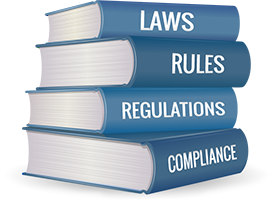
Nigerian Code of Corporate Governance 2018: necessity or superfluity? | Teingo Inko – Tariah

Preamble
Plans to harmonize the
corporate governance legal framework in Nigeria began in January, 2013 when a
Steering Committee on National Code of Corporate Governance was commissioned to
harmonize and unify all existing sectoral codes in Nigeria. Consequently, in
2016, the Financial Reporting Council of Nigeria (FRCN) published a draft
3-part National Code of Corporate Governance for the private, public and the
non-profit sectors in line with sections 11(c), 50 & 51 of the Financial
Reporting Council of Nigeria Act, 2011. The code for private sector was
mandatory but did not specify any commencement or effective date. The non-profit
sector code was stated to commence on October 17, 2016 on a “comply or justify
non-compliance” basis while that of the public sector was to take effect upon
the receipt of an executive directive from the Federal Government without a
specified approach in terms of operation and application. Related blog posts on
the 2015 code can be found here and here.
corporate governance legal framework in Nigeria began in January, 2013 when a
Steering Committee on National Code of Corporate Governance was commissioned to
harmonize and unify all existing sectoral codes in Nigeria. Consequently, in
2016, the Financial Reporting Council of Nigeria (FRCN) published a draft
3-part National Code of Corporate Governance for the private, public and the
non-profit sectors in line with sections 11(c), 50 & 51 of the Financial
Reporting Council of Nigeria Act, 2011. The code for private sector was
mandatory but did not specify any commencement or effective date. The non-profit
sector code was stated to commence on October 17, 2016 on a “comply or justify
non-compliance” basis while that of the public sector was to take effect upon
the receipt of an executive directive from the Federal Government without a
specified approach in terms of operation and application. Related blog posts on
the 2015 code can be found here and here.
Following controversies
that trailed the provisions of the 3-part 2015 code including conflict with
existing law, the code was suspended by the Ministry of Industry, Trade &
Investment, the supervising Ministry for the Financial Reporting Council of
Nigeria pending a “detailed, review, extensive consultation with stakeholders
and reconstruction of the Board of the Financial Reporting Council”.
Consequently, the Nigerian Stock Exchange issued a circular on suspension of the frc code of corporate
governance.
that trailed the provisions of the 3-part 2015 code including conflict with
existing law, the code was suspended by the Ministry of Industry, Trade &
Investment, the supervising Ministry for the Financial Reporting Council of
Nigeria pending a “detailed, review, extensive consultation with stakeholders
and reconstruction of the Board of the Financial Reporting Council”.
Consequently, the Nigerian Stock Exchange issued a circular on suspension of the frc code of corporate
governance.
On Tuesday January 15,
2019, the Vice-President of Nigeria, Prof. Yemi Osinbajo and the Minister for
Industry, Trade & Investment, Dr. Okechukwu Enelamah unveiled the Nigerian
Code of Corporate Governance 2018. Below are some highlights of the content of
the new code.
2019, the Vice-President of Nigeria, Prof. Yemi Osinbajo and the Minister for
Industry, Trade & Investment, Dr. Okechukwu Enelamah unveiled the Nigerian
Code of Corporate Governance 2018. Below are some highlights of the content of
the new code.
Overview of the 2018 Code
Purpose
The purpose of the 2018
code is to institutionalize corporate governance best practices in Nigerian
companies and to promote public awareness of essential corporate values and
ethical practices that will enhance the integrity of the business environment.
It is expected that by adhering to the principles articulated in the Code,
companies will demonstrate a commitment to good governance practices thereby
increase transparency, trust and integrity, and create an environment for
sustainable business operations. Consequently, this will rebuild public trust
and confidence in the Nigerian economy, thus facilitating increased trade and
investment.
code is to institutionalize corporate governance best practices in Nigerian
companies and to promote public awareness of essential corporate values and
ethical practices that will enhance the integrity of the business environment.
It is expected that by adhering to the principles articulated in the Code,
companies will demonstrate a commitment to good governance practices thereby
increase transparency, trust and integrity, and create an environment for
sustainable business operations. Consequently, this will rebuild public trust
and confidence in the Nigerian economy, thus facilitating increased trade and
investment.
Applicability/scope
The Code is applicable to companies of varying sizes and complexities
across industries/sectors. This will include public and private companies. The
Code recognizes existing sectoral codes viz:
1.
Code of Corporate Governance for the
Telecommunication Industry 2016, issued by the Nigerian Communications
Commission (replaced 2014 NCC Code);
Code of Corporate Governance for the
Telecommunication Industry 2016, issued by the Nigerian Communications
Commission (replaced 2014 NCC Code);
2.
Code of Corporate Governance for Banks and
Discount Houses in Nigeria 2014 issued by the Central Bank of Nigeria (replaced
2006 CBN Code);
Code of Corporate Governance for Banks and
Discount Houses in Nigeria 2014 issued by the Central Bank of Nigeria (replaced
2006 CBN Code);
3.
Code of Corporate Governance for Public
Companies in Nigeria 2011 issued by the Securities and Exchange Commission
(replaced 2003 SEC Code);
Code of Corporate Governance for Public
Companies in Nigeria 2011 issued by the Securities and Exchange Commission
(replaced 2003 SEC Code);
4.
Code of Good Corporate Governance for
Insurance Industry in Nigeria 2009 issued by the National Insurance Commission;
and
Code of Good Corporate Governance for
Insurance Industry in Nigeria 2009 issued by the National Insurance Commission;
and
5.
Code of Corporate Governance for Licensed
Pension Fund Operators 2008 issued by the National Pension Commission.
Code of Corporate Governance for Licensed
Pension Fund Operators 2008 issued by the National Pension Commission.
However, the Code does
not specify whether or not these codes would be subject to its provisions or
would be applied side-by-side with them. Worthy of note also are the recently
released codes of Corporate Governance by the Central Bank of Nigeria in 2018 for
Bureau De Change operators, Primary Mortgage Banks, Finance Companies,
Micro-Finance Banks, Development Finance Banks and Mortgage Re-finance
companies. These codes have been tailored to suit the various types of
financial institutions mentioned but there is no mention of these new set of
codes released by the Central Bank of Nigeria.
not specify whether or not these codes would be subject to its provisions or
would be applied side-by-side with them. Worthy of note also are the recently
released codes of Corporate Governance by the Central Bank of Nigeria in 2018 for
Bureau De Change operators, Primary Mortgage Banks, Finance Companies,
Micro-Finance Banks, Development Finance Banks and Mortgage Re-finance
companies. These codes have been tailored to suit the various types of
financial institutions mentioned but there is no mention of these new set of
codes released by the Central Bank of Nigeria.
Approach/Model
The 2018 code adopts a
principles based ‘Apply and Explain’ approach which requires companies to show
how the specific activities undertaken by them best achieve the outcomes
intended by the principles of the Code. Thus, companies are expected to adapt
the principles to suit their type, size and growth phase.
principles based ‘Apply and Explain’ approach which requires companies to show
how the specific activities undertaken by them best achieve the outcomes
intended by the principles of the Code. Thus, companies are expected to adapt
the principles to suit their type, size and growth phase.
Structure of the Code
The Code comprises of 6
parts: A – F, 28 principles and over 200 recommended practices. Each Part deals
with a broad aspect of corporate governance which is broken into principles and
recommended practices as follows:
parts: A – F, 28 principles and over 200 recommended practices. Each Part deals
with a broad aspect of corporate governance which is broken into principles and
recommended practices as follows:
Part A: Board of
Directors and officers of the Board
Directors and officers of the Board
Part B: Assurance – risk
management, internal & external audit, whistle-blowing
management, internal & external audit, whistle-blowing
Part C: Relationship with
shareholders – General meetings, continuous dialogue, equitable treatment and
shareholder protection.
shareholders – General meetings, continuous dialogue, equitable treatment and
shareholder protection.
Part D: Business conduct
with Ethics – values, conflict of interest, etc.
with Ethics – values, conflict of interest, etc.
Part E: Sustainability –
attention to sustainability issues including environmental, social,
occupational, community health and safety.
attention to sustainability issues including environmental, social,
occupational, community health and safety.
Part F: Transparency –
disclosure.
disclosure.
Monitoring &
Implementation
Implementation
The FRCN is saddled with
the responsibility of monitoring implementation of the Code. This will be done
through sectoral regulators and registered exchanges who are empowered to
impose appropriate sanctions based on specific deviation noted and the affected
company. In addition, the FRCN may conduct reviews on implementation of the
code where deviations recur and adopt other monitoring mechanisms as a result
of such reviews. Where necessary, the FRCN in consonance with relevant
regulatory agencies may issue corporate governance guidelines to aid
implementation of the Code in line with sectoral peculiarities.
the responsibility of monitoring implementation of the Code. This will be done
through sectoral regulators and registered exchanges who are empowered to
impose appropriate sanctions based on specific deviation noted and the affected
company. In addition, the FRCN may conduct reviews on implementation of the
code where deviations recur and adopt other monitoring mechanisms as a result
of such reviews. Where necessary, the FRCN in consonance with relevant
regulatory agencies may issue corporate governance guidelines to aid
implementation of the Code in line with sectoral peculiarities.
Comment/Conclusion
The 2018 Code of
Corporate Governance appears to have deviated from the original goal of
harmonizing and unifying all existing sectoral codes in Nigeria. Rather, the
2018 code adds to the number of existing codes of corporate governance in
operation as listed above. However, since the 2018 code will operate more of a
principles than rules based approach, unlike the 2015 code, companies may not
face an additional burden of penalties and sanctions for deviation from the
code.
Corporate Governance appears to have deviated from the original goal of
harmonizing and unifying all existing sectoral codes in Nigeria. Rather, the
2018 code adds to the number of existing codes of corporate governance in
operation as listed above. However, since the 2018 code will operate more of a
principles than rules based approach, unlike the 2015 code, companies may not
face an additional burden of penalties and sanctions for deviation from the
code.
Unlike the 2015 code, the
2018 code has adopted a different approach from the rules based model as there
are no express sanctions for non-compliance. There seems to be some uncertainty
as to the model of corporate governance to be adopted. Most of the sectoral codes
are rules based with sanctions for non-compliance. It is believed that this
will impact on implementation and assessment.
2018 code has adopted a different approach from the rules based model as there
are no express sanctions for non-compliance. There seems to be some uncertainty
as to the model of corporate governance to be adopted. Most of the sectoral codes
are rules based with sanctions for non-compliance. It is believed that this
will impact on implementation and assessment.
One wonders how the
implementation of the 2018 code will fare especially as the FRCN hopes to work
through other regulators and exchanges in this regard. The Securities &
Exchange Commission has an existing code and currently, this forms the basis
for assessment of the corporate governance parameter of the index created by
the Nigerian Stock Exchange in conjunction with the Convention on Business
Integrity (CBi). The telecoms, financial and insurance sectors, among others,
also have codes of corporate governance.
implementation of the 2018 code will fare especially as the FRCN hopes to work
through other regulators and exchanges in this regard. The Securities &
Exchange Commission has an existing code and currently, this forms the basis
for assessment of the corporate governance parameter of the index created by
the Nigerian Stock Exchange in conjunction with the Convention on Business
Integrity (CBi). The telecoms, financial and insurance sectors, among others,
also have codes of corporate governance.
Although the Executive
Director of the FRCN reportedly stated that
the codes of Corporate Governance by the Central Bank of Nigeria and Securities
and Exchange Commission will serve as guidelines when the 2018 code takes
effect in January 2020, there is no clear expression in the code of how it will
stand with the existing sectoral codes in terms of which will supercede where
there is a conflict. Moreover, there are other sectoral codes not mentioned.
Will the regulatory bodies or exchange implement this new code of corporate
governance along with their respective codes? How feasible is it to implement
and monitor compliance with two parallel codes?
Director of the FRCN reportedly stated that
the codes of Corporate Governance by the Central Bank of Nigeria and Securities
and Exchange Commission will serve as guidelines when the 2018 code takes
effect in January 2020, there is no clear expression in the code of how it will
stand with the existing sectoral codes in terms of which will supercede where
there is a conflict. Moreover, there are other sectoral codes not mentioned.
Will the regulatory bodies or exchange implement this new code of corporate
governance along with their respective codes? How feasible is it to implement
and monitor compliance with two parallel codes?
Overall, the multiplicity
of codes may end up becoming a burden for companies on one hand and for
investors who wish to gauge their integrity and accountability on the other
hand. It may be necessary to have some form of harmonized system to standardize
corporate governance best practices in Nigeria. In the alternative, the new
code could be made applicable to companies other than those with sector
specific codes.
of codes may end up becoming a burden for companies on one hand and for
investors who wish to gauge their integrity and accountability on the other
hand. It may be necessary to have some form of harmonized system to standardize
corporate governance best practices in Nigeria. In the alternative, the new
code could be made applicable to companies other than those with sector
specific codes.
You can download a copy
of the 2018 Nigerian Corporate Governance Code here nccg 2018
of the 2018 Nigerian Corporate Governance Code here nccg 2018
Source: Legally Yours





